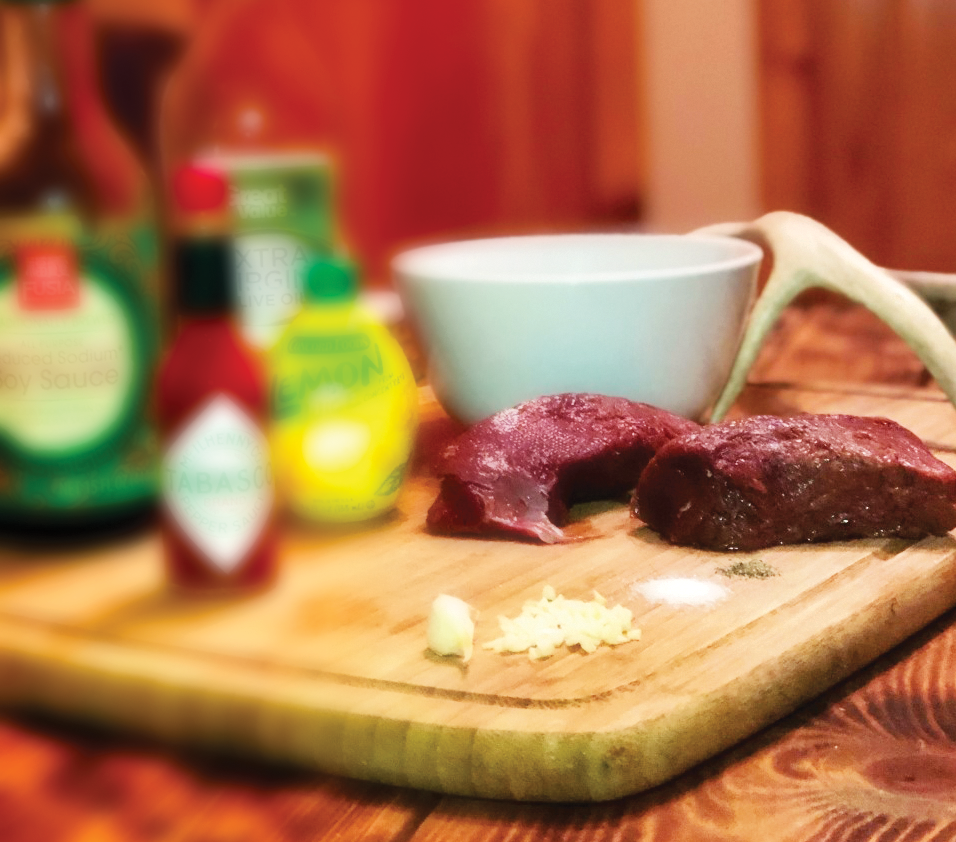Marinating any meat will improve its flavor, taste and appeal. With wild game, marinating may also remove or mask any real or perceived gamey taste or aroma the meat may have. If you haven’t prepared any meat this way, you should, particularly wild game.
Marinating simply breaks down meat fibers and gives added flavor.

You have several marinating options:
- Any acid-based liquid will work as a marinade, such as a weak vinegar-water solution (1 cup vinegar to 1 gallon water).
- Other acid-based items include:
- Milk
- Citric juices (orange, lemon, lime, grapefruit, clementines, tangerines)
- Italian salad dressing
- Tomato juice. Tomato juice will neutralize strong odors. The naturally high acidic content of tomato juice also helps tenderize meat.
- Pineapple contains citric acid.
- Stone fruits, such as cherries, peaches and apricots, also contain citric acid.
- Many berries contain naturally occurring citric acid. Berries with higher amounts of citric acid include strawberries, raspberries, cranberries, red and black currants, and gooseberries. Blueberries do not contain acids.
Wine is Fine
Wine works well in many wild game recipes (and in many wild game cooks). Wine can be a meat tenderizer in a meat marinade, or it can be a seasoning. Wine is as easy to use as salt and pepper, and it brings food flavors together in interesting ways. The alcohol evaporates as the wine cooks, leaving only the fine flavor, so it can be used in any family recipe.
To use wine in recipes that don’t call for it, just substitute it for part of the other liquids.
Use a good table wine in your cooking instead of a cooking wine. You will like the results better. Red meats can be cooked with red wines; they generally have richer or more robust flavors. Fish often is best with white wine. In sum, try things and find out what you prefer.
5 Important Marinating Notes:
- No matter which marinade you use, cover the meat completely with the marinade in a self-sealing plastic bag or any non-metal container. Do NOT use a metal container, because the acid will react with the metal. Refrigerate the meat for the entire marinating process.
- Foods can be marinated up to 48 hours, but 24 hours usually is long enough for the marinade to penetrate the meat, thus adding flavor.
- Marinate meat at least 4 hours; 8 hours is better. When using commercial marinades, follow instructions on the package.
- Do not cut chops or steaks until ready to marinate or cook. Any cut creates water loss from the meat; thus, the earlier the cuts, the more the meat will have dried before you’re ready to work with it.
- WARNING: If a marinade is used and drained off, then reused to baste the meat during cooking, the marinade must be heated to the boiling point 1-2 minutes before it is reused. Bacteria from the meat could be in the marinade and make it unsafe if the marinade isn’t reheated.
Bear Meat
Some of you may find bear meat to have a slightly strong taste; others will not. If there is a stronger taste than you prefer, marinating the meat will add a flavor you like.
After it is marinated, cook bear meat as you would beef. Be sure to cook it well done to an internal temperature of 170 degrees F, but do not overcook it.
As with most cooking, a bit of experimentation may be necessary to find the preparation methods, marinades and recipes you prefer.
Bear meat and pork are the only meats that must be cooked to an internal temperature of 170 degrees F, which makes them well done (not the same as overcooked) to eliminate the possibility of trichinosis. Be sure NOT to overcook the meat; we cannot over-emphasize this.

